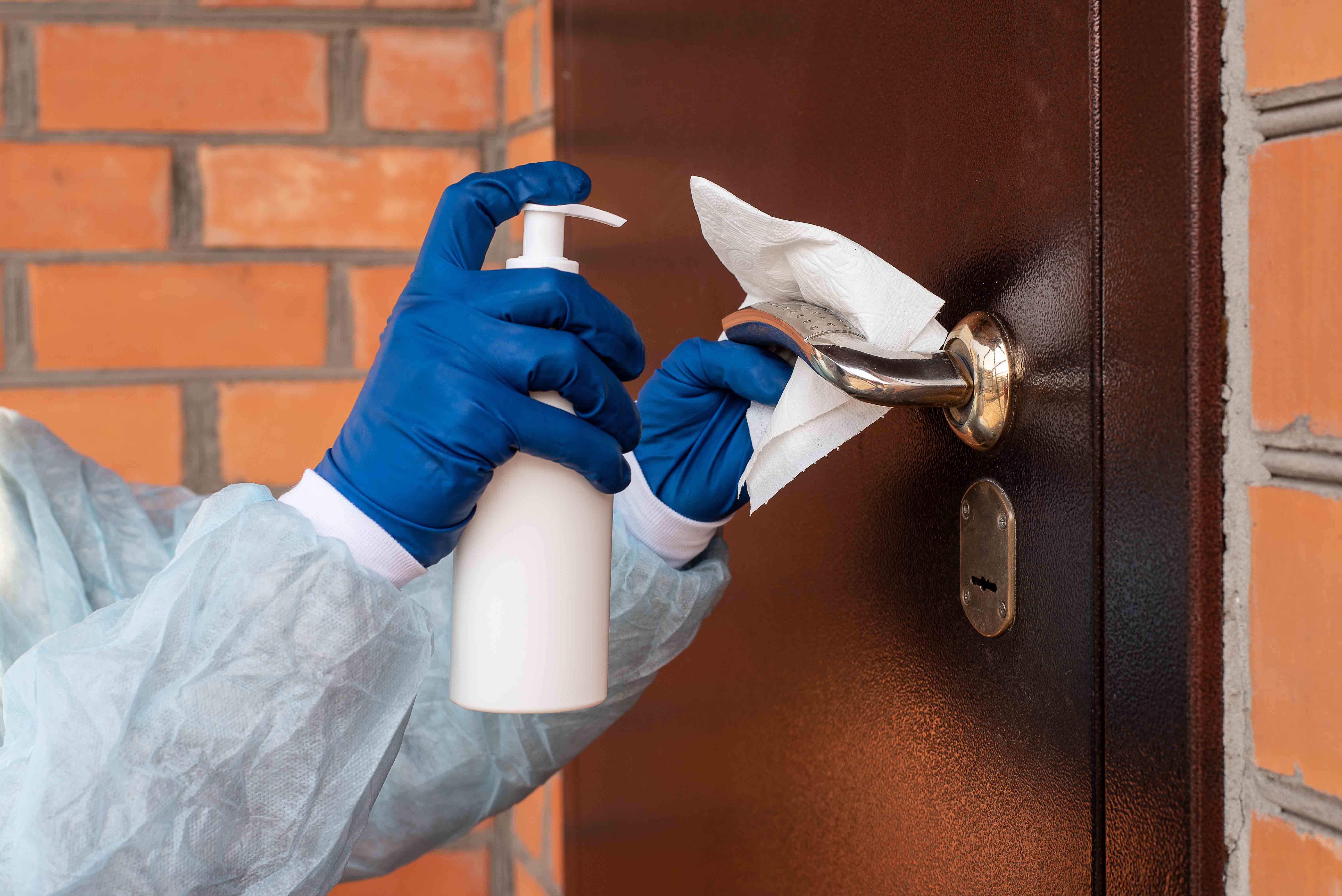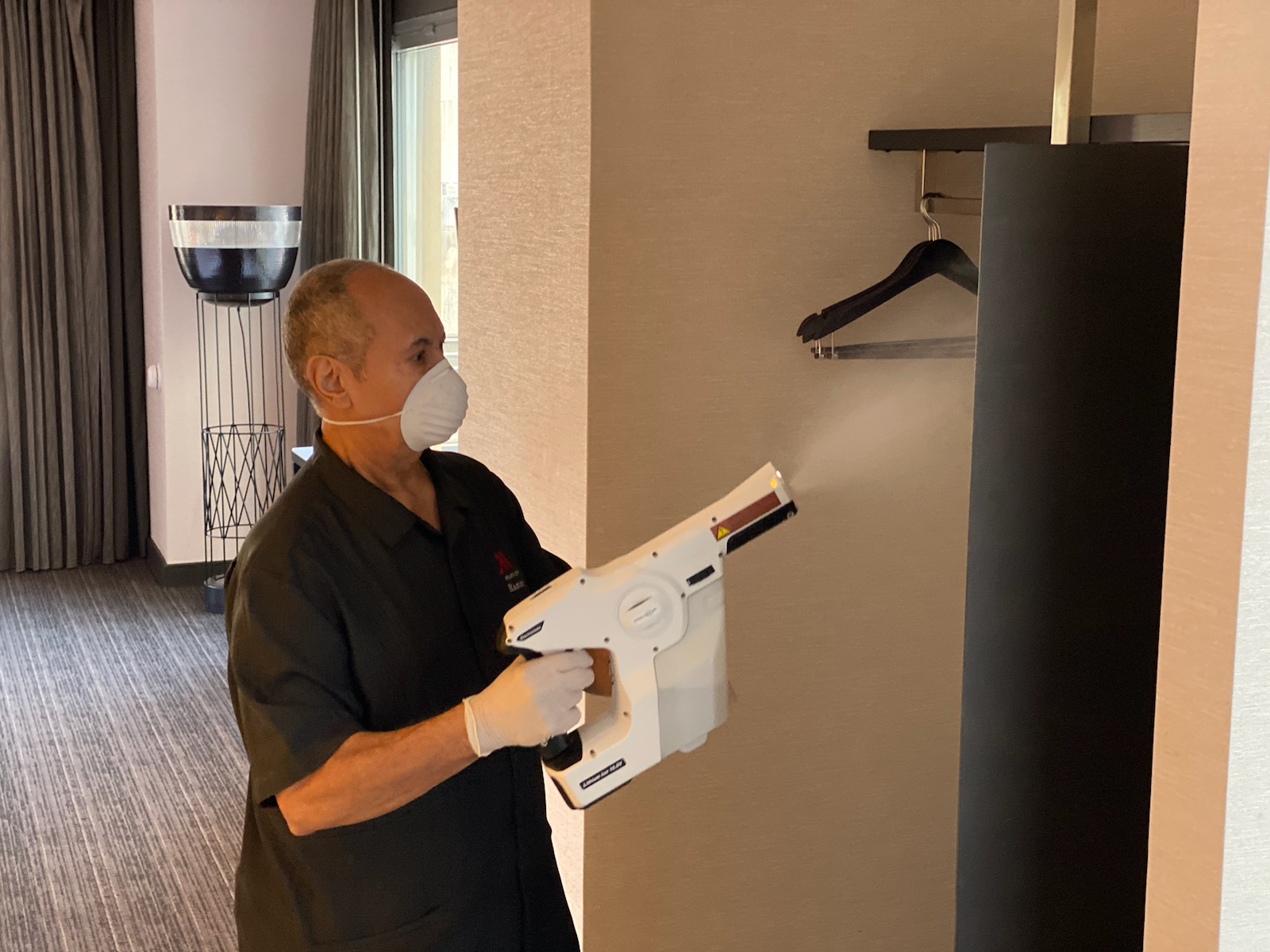Covid-19 and the Hospitality Sector: the Need for Credible Hygiene Certification to Gain Trust and Create Jobs
As countries move towards relaxing lockdown restrictions, major hotel chains are already rolling out hygiene programs to raise cleanliness standards to reassure guests that their hotels are free of the Covid-19 virus.
Marriott International, for one, has announced that it is launching a Global Cleanliness Council with public health experts on board and its hotel staff will be using equipment such as electrostatic sprayers and hospital-grade disinfectant to keep surfaces clean and safe for guests.
"We want our guests to understand what we are doing today and planning for in the near future …. so that when they walk through the doors of one of our hotels, they know our commitment to their health and safety is our priority," Marriott International President and Chief Executive Officer, Arne Sorenson is quoted as saying in the news release.
Accor has launched its own initiative, joining forces with Bureau Veritas which is involved in testing, inspection and certification, to develop a certification label to ensure that its hotels achieve ‘appropriate' safety standards and cleaning protocols.
Hygiene certification and trust were among the issues discussed during HoCoSo Connect's recent virtual forum. SV Hotel Group Managing Director Beat Kuhn told the session that his company, which operates eleven Marriott hotels, including extended-stay Residence Inns, is making sure its hotels have glass protective screens and are adhering to the basic distance rule of two metres. He noted that while the Marriott chain was preparing hygiene tool kits for when hotels re-open, his group was also preparing hygiene regulations for its hotels.
Whereas travel had previously been relatively cheap and accessible, said HoCoSo chairman Jonathan Humphries, "maybe it's going to be more expensive to stay in a hotel because of all the things that need to be put in place because it's going to take twice as long to clean rooms."
"Maybe it will be more expensive to travel but maybe that's where the business might be more profitable in future." Take for instance, the changes underway at a Swiss medical and wellness group due to Covid-19. "They're just going to have a one-on-one relationship with patients and the doctor is going to be Covid-tested. There's going to be certification for the entire duration of the person's stay. Now obviously, their plan is to increase the pricing dramatically as a consequence of that as there's no price resistance to that."
Sean Worker, CEO of advisory T5 Strategies, spoke of the need for certification programmes and how the various hotel associations could help promote that. "How do you win the trust and confidence of the consumer?," he asked. "Every time you go into a hotel or sit in an aircraft, you want to know that the person next to you doesn't have coronavirus or that the plane has been cleaned." And the process of turning around a plane or hotel room to ensure they are thoroughly cleaned will take more time and cost more.
The luxury segment has always been more ‘high touch' than ‘high tech' and that's likely to remain the case. Consultant Alphy Johnson though believes the hotel industry may increasingly veer towards greater use of technology in order to service rooms. "This might actually accelerate that because it's going to be near impossible to have staff make up rooms in white Tyvek space suits."
"Look at all the fabrics and finishes that are used in the hotel room today. They're porous and, given the virus and bacteria, are magnets," said Johnson, President of International Hospitality Advisor. "How do you treat those? I'm not advocating that your hotel room should look like an operating theatre but we need to see how we can do better with materials that are out there."
As an operator, John Wagner, co-founder of Cycas Hospitality, has been grappling with hygiene issues and queries about chemicals to ensure that his hotels are safe. "In the short term, our emphasis will be on giving our guests the confidence that we've done everything possible to tackle the cleanliness and sanitation issues that will become the norm in the new world we find ourselves facing."
"Suddenly the executive housekeeper is the most powerful person in the hotel for the foreseeable future," said Chris Mumford, founder of Cervus Leadership Consulting, adding that he wondered where the necessary skillsets would come from. "Will we need to import the skillsets from the healthcare sector? Operators are having to work it out for themselves and I don't know whether any guidance is coming."
In fact, guidance was on the way. Coincidentally, just a few days after the HoCoSo Connect session, the American Hotel & Lodging Association informed its members that the AHLA was launching ‘ Safe Stay ', "an initiative focused on enhanced cleaning practices, social interactions, and workplace protocols."
For consultant Alphy Johnson, certification should be "detailed and difficult to get" so that it is not just seen as a form of ‘greenwashing'. Credibility is key in order to win the trust of hotel guests. His clients, he said, are asking for clarity on the sanitation and cleaning of rooms. "At the moment, it's pretty scary what hotel chains are being required to do to make sure their rooms are Covid-19 safe. I imagine this can be streamlined at some point, but I'm concerned about washing everything with bleach and alcohol."
That then begs the question: how many of us then would be prepared to stay in hotels smelling of bleach and chemicals, even if it means that hotels are effectively Covid-safe?
James Fry, Managing Director of JJF Hospitality, recalled how his company's hotels in Switzerland had introduced chemical-free cleaning products and methods, using electrolysis to mix water and salt-based solutions into an anti-bacterial liquid. "We used that for everything in the hotels including toilets and commercial kitchens. It was very effective. We used nothing else and it meant we didn't use any chemicals to clean the rooms."
"Housekeepers in hotels suffer 40 percent more respiratory diseases than the general population," Fry said. "That's partly because of the dust but it's also the heavy amount of chemicals they're dealing with."
He cited the example of a mother whose son had been very ill. They had previously stayed at more than 50 hotels when seeing specialists and doctors, but because of the chemical-free cleaning processes this was the first time he had not been physically sick or come out with rashes.
Calling this a ‘game changer,' Fry added: "We're looking at no use of chemicals, air filters in the rooms to make the air 95 percent cleaner than, say, a room in London. We're also looking at the paints and glues we use so that when people are staying there, they can have a clean air environment that's meant to promote better quality of sleep."
"We're talking about repositioning ourselves as a sector and looking to grow. The brands that do that and communicate that the best are going to be the ones that are ultimately the big winners out of this."
For Sean Worker of T5 Strategies, it's important to instill trust and confidence - as well as come up with practical solutions and press the hotel associations to provide support to the sector - to make sure the industry flourishes again.
"Every voice counts at this point," said Worker, who was previously CEO of BridgeStreet. "People are looking for ideas and companies need to make some money as well to bring back jobs. We've got to be the creator of jobs after the tsunami of unemployment and we can all really make a difference that way."
In bringing the session to a close, Humphries of HoCoSo noted that if hotels are physically checked on a regular basis, "you could easily see an army of hundreds of thousands of people around the world making sure everything is checked properly. So there is potential there."
Useful information
To help hospitality plan for Covid-19 operations in hospitality, the European Hotel, Restaurant and Cafe Industry and the European Federation of Food, Agriculture and Tourism Trade Unions have issued a press release regarding hygiene measures recommendations while the COVID-19 containment is getting lifted. Read the full press release here.
Also, the World Health Organization has released findings of a study on operational considerations for COVID-19 management in the accommodation sector. Read the full article here.
About the Author - Stuart Pallister
After working as a television journalist in Asia and Europe for nearly 20 years for mainly CNBC and Asia Business News, BBC Radio and TV, European Business News, and McKinsey, Stuart switched to digital content development at INSEAD business school and the National University of Singapore. He then headed the Academic Editorial Content at Ecole hôtelière de Lausanne and launched its knowledge platform Hospitality Insights by EHL.
About HoCoSo
Marketing & Media Manager
HoCoSo
T: 961-304-5441
E: rhea@hocoso.com
W: http://www.hocoso.com










